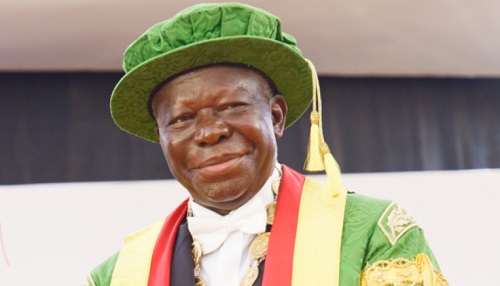
Education is an unavoidable component of every nation’s socioeconomic growth, and Ghana is no exception.
Since educational priorities and processes are guided by societal needs aims, and desires, our young people receive high-quality education that prepares them well to fit into society.
They highlight the importance of ensuring and achieving learning goals while teaching students, since learning results are completely realised after understanding the construct validity of one’s educational achievement, as measured by grades.
As a result, one of the procedures for determining one’s educational achievement, which is measured by grades, is examination.
Examination and academic dishonesty form substantial part of challenges facing the conduct and credibility of national examinations worldwide.
Prominent among academic dishonesty is examination malpractices. Examination malpractices, in recent times, have become an annual ritual in our national examinations.
Among the major national examinations in Ghana are the Basic Education Certificate Examination (BECE) and the West African Senior School Certificate Examination (WASSCE), which require collective responsibility of all stakeholders to ensure the sanctity in our national examinations for credible certifications.
Examination malpractice is a situation in which an examination candidate had unwarrantable advantages before, during, or after the examination so that the candidate achieves cheap success afterward.
The various forms of malpractices include bringing foreign materials into the examination hall, irregular activities inside or outside the examination hall, collusion, impersonation, foreknowledge, leakage, mass cheating and insult or assault on examination officials.
Others are contravention of instructions to candidates, multiple registrations or registration of unqualified candidates, destruction of exhibits, posting live questions on the internet, refusal to grant timely access into the school premises and misconduct of examination officials.
We must be interested in the root causes of this unpardonable practices in our educational systems, which include candidates’ fear of failure, competition, as well as some parents insisting for their wards gaining admission to prestigious schools even when they lack the qualifications.
We have a situation where some wealthy and influential people in our society use their money and power to procure exam papers for their wards.
Some school heads, with the view of being seen as a performing head or school of choice, use unscrupulous means to acquire papers and teach their students to obtain distinction.
The seriousness of students is also thrown to the wind. In addition, invigilators create conducive environment for candidates to import foreign materials into the exam halls, or help each other, and even allow some teachers to solve exam questions for the students.
Another is failure of some teachers to finish the course syllabus, lack of requisite and relevant materials as well as insufficient preparation of candidates for final examinations.
Furthermore, the inability of the security to promptly investigate reported cases of alleged exam malpractices cannot be overlooked.
Consequences
The consequences of examination practice include:
a) Discouragement of brilliant candidates to study hard
b) Deprivation of innocent students’ opportunity for admission.
c) Reduction in work efficiency
d) Erosion of faith in the educational system
e) It breeds laziness in candidates
f) It affects student’s study habits
g) Inability to defend results and certificates
h) It causes incompetence in graduates
i) It affects the integrity of a school or institution.
Not until we address these fundamental causes, examination malpractice will continue in our national examinations, irrespective of who is in the steering wheel.
In my view to tackle this canker, all stakeholders must collaborate for effective action.
The West African Examinations Council (WAEC) must audit and strengthen its internal control systems regularly.
Also, stakeholder engagement is very necessary to sensitise the public and society through various media channels on the implications of examination misconduct to national development.
School authorities and parents should desist from patronising fake websites for examination questions, students must be serious with their studies and well prepared for the exam, parents must monitor their wards and provide all the necessary support they need.
Additionally, teachers should adequately cover the course syllabus, invigilators should be professional in their roles, security officials must not throw caution to the wind while the authorities must provide the necessary environment suitable for effective teaching and learning, among others.
When we all play our roles as expected, it will go a long way to mitigate the prevalence of malpractices in our national exams, if not totally eradicated, thereby enhancing creditability of our national academic certificates.
This means that all those involved in examination execution need to be skilled, alert, responsible and empowered so that they can help curb this canker.
The following recommendations are suggested:
1. National assessment bodies should work progressively to remove the human element in the conduct of its examinations.
2. Government should permit internet censorship during the conduct of national examinations.
3. The ban on the use of mobile cell phones and communication devices in examination halls should be enforced to check the new wave of e-cheating.
4. Stakeholders should stop paying lip services to examination malpractice.Religious and community leaders should plead with parents who insist on their children getting the best result without genuine efforts for it.
5. Promoting the greater utilisation of ICT in the conduct of public examination to curb cheating.
The writer is a Research Fellow at the University of Ghana.
SOURCE: Graphiconline






